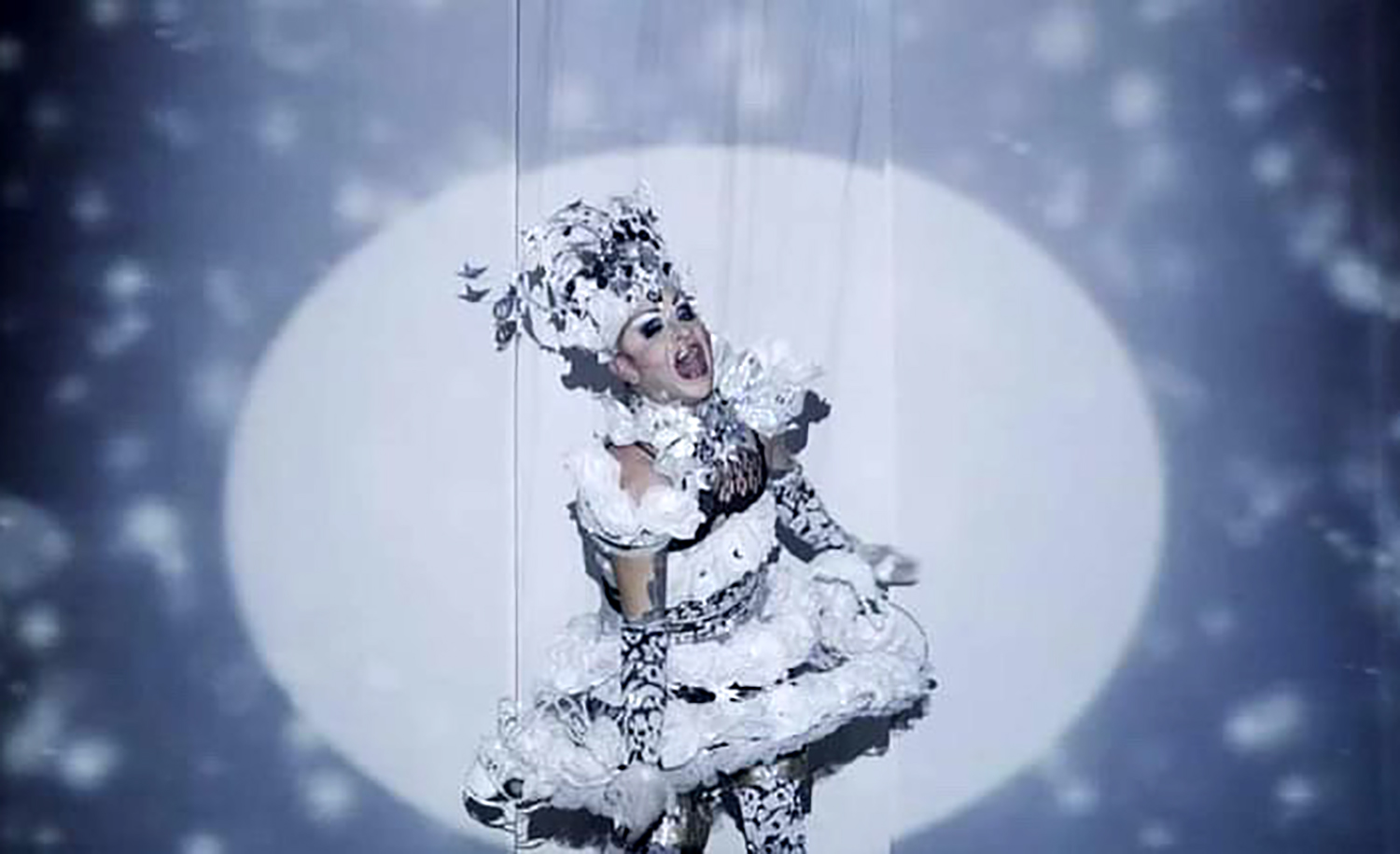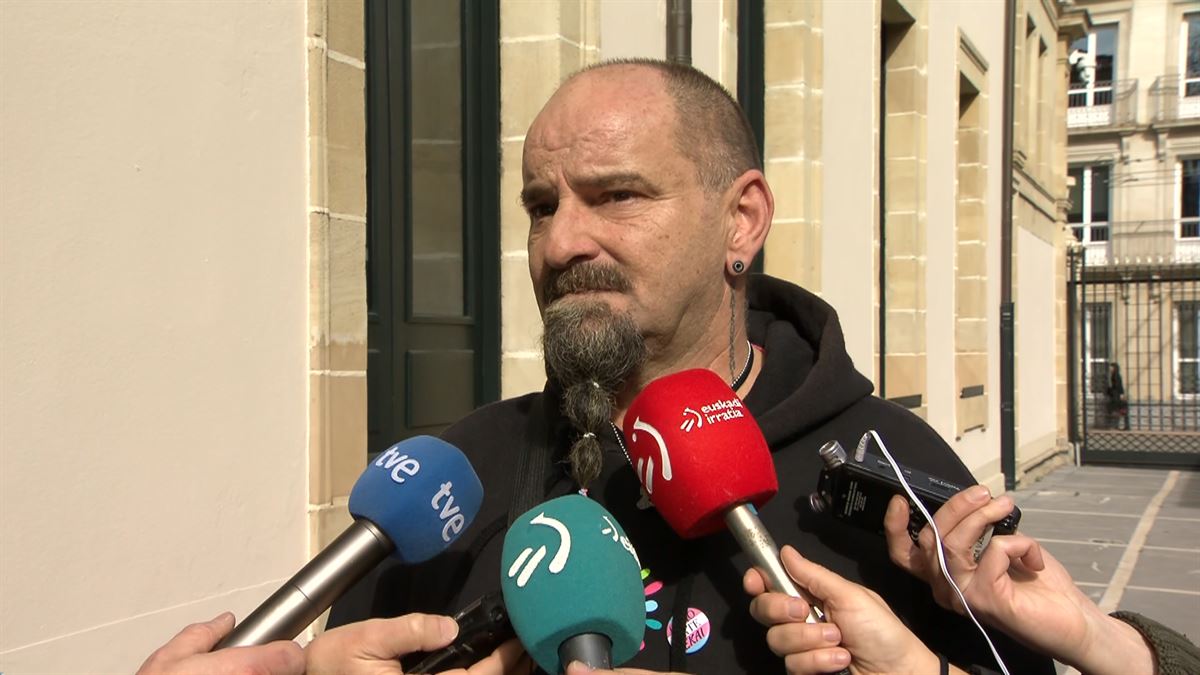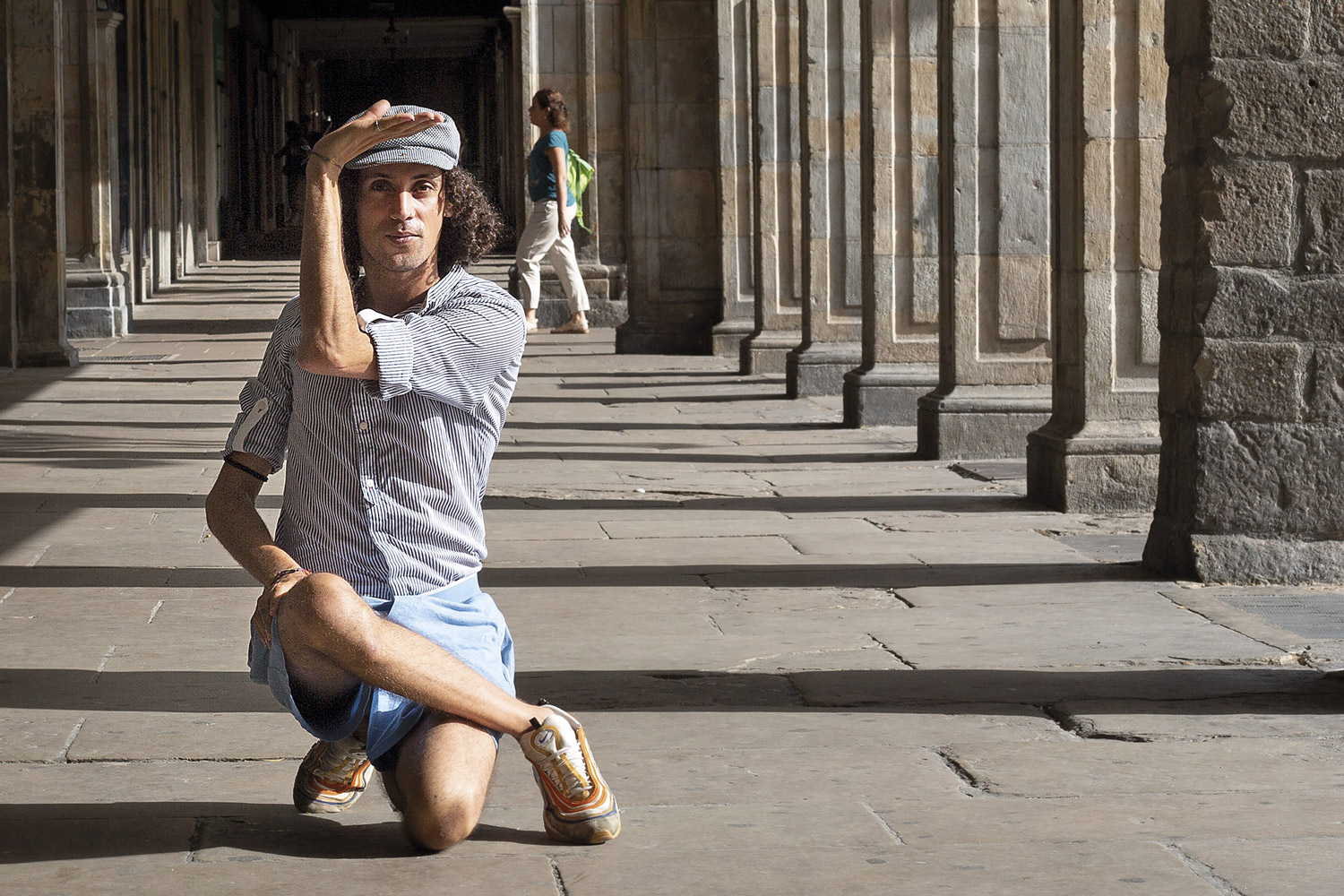"Cis eyes need transsexuality to stabilize and accentuate"
- Early February in Bilbao. The writer and thinker McKenzie Wark has just arrived from Berlin, which lives in the United States, and after two or three days in Euskal Herria he goes to Valencia. I was not surprised when he told me that the head is bruised. Nevertheless, clarity is yours. He has perfectly explained to me the traps of cis eyes and the asymmetries of the information vector that could be even worse than capitalism; little, and to finish the interview I'm about to meet the trans queers of New York.

McKenzie Wark. Newcastle, Australia, 1961
Writer and researcher. He is a professor of cultural studies and information technologies at the New School for Social Research in New York. He was one of the precursors of the Hacker counterculture and has also written about anthropocene, situationism, queer identities and post-Marxist political theory. In 2017, she made a gender transition. In the interview we mentioned some of his books, but I would not forget the work he has just published on the writer Kathy Acker: Philosophy for Spiders: On the Low Theory of Kathy Acker.
You are invited by Bulegoa z/b to the V Encuentro Euskal Herria: Session of the exhibition (1977-2017). Two acts shall be public. Yesterday [7 February] delivered a writing workshop at the same Office: Trans writing at the end of the world. How was that?
In the end, about 60 people came together, and it wasn't a factory like the one I wanted, but it was nice to meet all those people. We're mostly talking about visual arts.
What did you want to study for yourself in
the workshop? I wanted to talk about contemporary writing trans and see what strategies trans have at their disposal to tell another story.
Because, in his opinion, a standard account of trans experiences predominates in general. What is that story like? A standard narrative that sets out concrete elements: you've always had to know you're a transe; it was born in
a wrong body, and now, thanks to the wonders of modern medicine, you can become a woman or a man. The truth is that everybody's life is not like that. And having that story is only harmful to trans people, because it's not everybody's. Cis is a story that people are waiting for, not helping us.
In short, this account of the evil body reinforces gender binarism. Whether it strengthens gender binarism or not, that's a problem for cis people, not mine. We
want to live our lives without any kind of kind.
.jpg)
I was struck by the second part of the workshop title. Are we at the end of the world? Trans liberation
has come at a rather bad time, if we bear in mind that we may not be able to access all civil and social rights before civilization, as we know it, will be lost. Deficient appearance. Climate change is accelerating more than they thought. We may not have much future for ourselves… It’s a slightly pessimistic view, but I think it helps to be realistic. In addition, trans people have lived for a long time without great prospects for the future, so perhaps we could learn something from it. We could learn how to live in the present and how not to leave things forever for later.
This afternoon [February 8] Azkuna Zentroa from Bilbao will offer a conference on the trans look: you will observe the cis look. How would you describe the cis view? It has two aspects. On the one hand, it is fascinated — sometimes ironically — by its
trans character and, on the other, it seems suspicious. It considers trans character as an anomaly that confirms cysticity. The look Cis needs transsexuality to stabilize and accentuate, projecting in gender transgressions the problem of gender transgression. And that's dangerous, because, by the cis view, we can be the object or the threat of sexual fascination. And the two options are negative, because we move quickly from one end to the other. It's hard to dissolve this structure. Trans people don't allow us to be normal, cis eyes want us to stop that.
What do you think about the feminist trend that excludes trans women? Is it feminism or is it fascism? Let us call it fascism, because in this corner of the world you know it perfectly well. Feminism that wants to leave control
over our bodies in the hands of the state makes no sense. One of the key demands of feminism is autonomy over the body, so we do not give them the name.
"The feminist trend that rejects female transas -- is it feminism or fascism? Let's call fascism because it's that."
He presents the book Reverse cowgirl. What counts is not the standard narrative of trans identity.
It's not the only possible story, but it can
be an alternative version to start building a new language for us. Perhaps I am wrong, but this book seems to me a little different from the most theoretical works that you preceded. I've been trying to write this book for a long time. It is true that my theoretical works
are better known, but I have also written essays and other non-fictional works. In any case, it seemed to me that I was no longer able to write from the position of an unmarked subject of this kind, so I put myself in the text. On the other hand, I didn't want to talk about a safe identity, as if I knew who I am. Therefore, the book reflects how unstable the idea of being a subject or an identity is.
What reception have you had? It was published just before the lockdown in English. I did not make any interview or presentation, but it is spreading orally and we
are now presenting translations. Many people have found themselves in the book, even if it is not a compromise.
It has happened to me like this. The book offers the opportunity to analyze the role of sexuality in personal
life and pays attention to the extreme experiences that many of us have had about drugs and sex. It is also a book about the abandonment of their place of origin, where readers have found very diverse points. The book is making its own way, and that's the best you can wish a book.
It should be noted that there is also a historical time and a geographical place: “It was a provincial time, in a provincial city,” he says in the book.
Yes, I was born in a city of steel and coal [Newcastle, Australia], where we lived about 200,000 people. I think there are a lot of people who have had to leave those places in order to grow. I, then, didn't know it was transiting, but I knew perfectly well that from there I had to notice yes or yes.
On the other hand, in terms of the media, it is also the story of a particular generation. Our generation grew up in the eagle of television and vinyl, which gives much to think about the influence of current social networks, if we analyze how other media shaped another generation.
As he has just said, in his day he did not know it was a transaction, and in the book there is also that idea: “Then we had no name for us.” Is naming always good or can it be a dual sword? Maybe today we're going to make
a lot of effort to call every thing by name, we have about 60 flags of pride, and that's OK. People need it. Not everything can be fixed with language, but it is helpful to have that language, we had no trace. I only had despicable words to name myself, or at least those we considered unpleasant, and it didn't help us anything. It did not help us understand the differences between transsexuality and homosexuality, the different forms of experience…
You're an Australian, but you've lived in New York for a long
time. Yeah, I've been there for 20 years. I fell in love with one from New York and so I migrated. I had no intention, but…
It was a big change.
Yes, I had to start again from scratch. I was thirty-three years old, and my entire career was in Australia.
He was a university professor.
Yeah, and I had to go back to the academic path in America, a little bit later. But look, I've had a chance to live in New York.
Are you satisfied? Now I'm 61. And at that age, you think, this is what I've done. But life has been good, yes.
Let's talk about the book he published before Reverse cowgirl: Capital is dead. Is something worse? [Deceased capital. Is this worse?] Tell me: is this historic phase that we live in worse than capitalism? We continue to use the language of a century and a half ago, as if nothing had changed, and capitalism as an invariable essence. But if this were worse, what? Suppose there is a new
core class that exploits not only the workforce, but also information and sociability. In this case, perhaps we need new concepts. Capitalism is still useful in describing a large part of the world, but maybe there's something else about capitalism, even worse. How are we going to think about it? We need a new language.
Because we give big companies lots of information
about us, without realizing it. The authorities have been able to exploit not only our work but also our work. Walking with your mobile phone in your pocket generates data for all companies, thanks to those small usage agreements that we all sign all the time. Through these agreements we accept to give a lot of information and in return we only collect papurs. Therefore, on the exploitation of the work there is an asymmetry of information.
I read a book by Shoshanna Zuboff, The Age of Surveillance Capitalism. What do you think of your proposal? Zuboff's book is of great help, but it does so like everyone else: it adds an adjective to capitalism and advances. It's capitalism with another taste. I insist, I think it is better to find
a new language instead of turning around the old idea.
.jpg)
You, for example, propose the concept of “vector class”. Would you explain it to us? What is capitalism? Ownership of the means of production. What is added today is the
vector of information. A lot of big companies we know don't produce their own goods. I am not going to say what brand the phone has here on the table, but I can say that the device itself has not produced it, even if the logo of that brand appears at the back of the device. The device has been produced by other capitalists.
So the capitalist class still exists, but then there is another class, the so-called vector class, that dominates the capitalists and is even worse. Are we going to think about it, please? Instead of acting as if we were still in the 19th century? Marx wrote it at the time of steam engines. But do you see steam machines here?
"The capitalist class still exists, but then there is another class, which I have called vector class, which dominates the capitalists and is even worse."
20 years ago he published the Hacker manifesto. Should we consider ourselves a
hacker before the vector class? Why not? How is the class called that, despite generating new information, it's not so proprietary? What are we? Creating this information is work in one sense, but it's not like factory work, it's managed differently, it's exploited differently. It is exploited by informative asymmetry.
Let's look at the same example of books: I get paid rights, but the publisher is actually the owner of the book, it's the one that wins the most, and the dealer won't say so. What is this work, which is not like the classic industrial model?
Before I finish, the last question: do you have other projects in your hands? The next book I'm going to publish in English is called Raving. In fact, at age 58, I've been
dancing the techno again at the minute of the morning. A few years ago I started, and in the end a small project was born that studies the rave, trans and queer culture of New York City.
What has this practice brought to you? For us it's kind of a hideaway, you know, the world is going wrong, but we're going to enjoy this space together. On the other hand, I think it has
value as a collective experience, because in the end we spend several hours off the phone. This will therefore be the next publication. And I'm very happy because this interview will come out in Basque. Thank you very much.

























